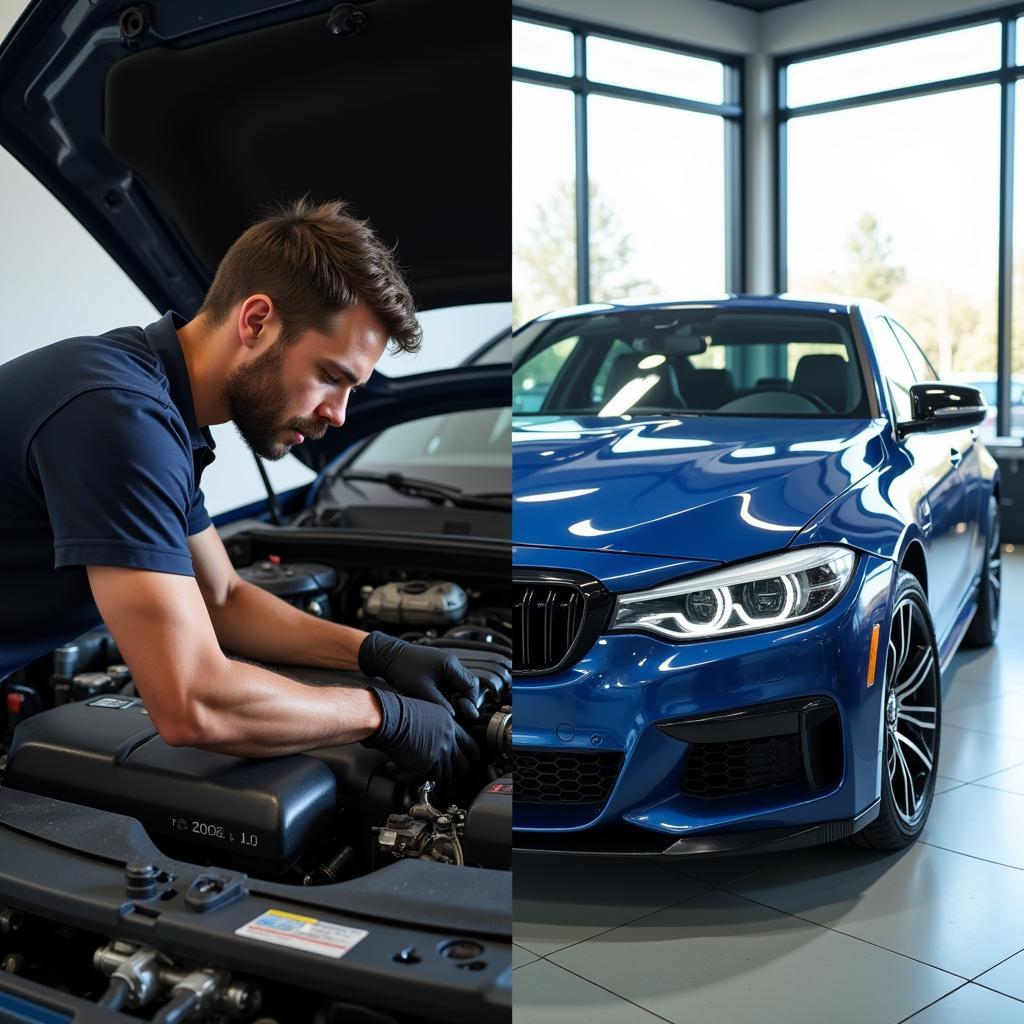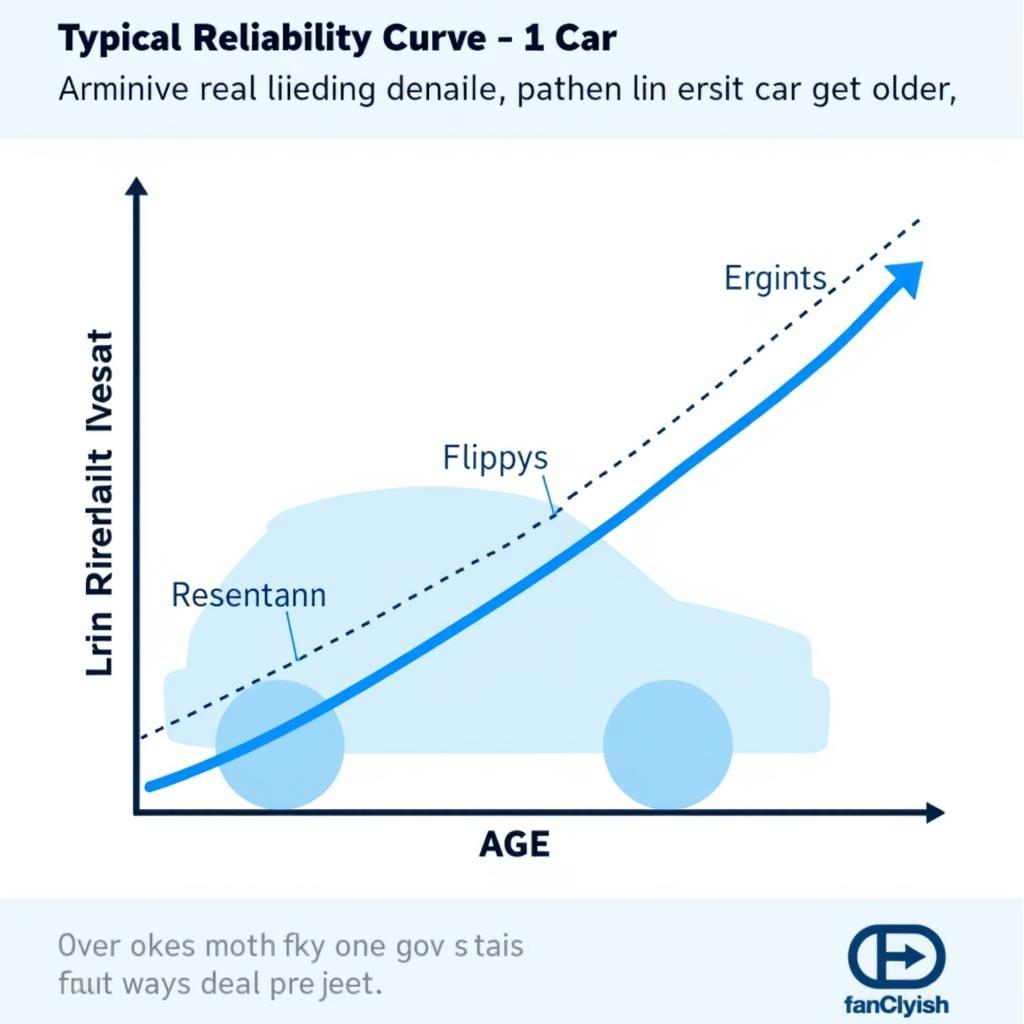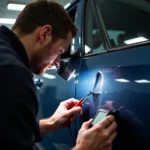The age-old question: when to buy a new car vs. repair your existing one? This guide dives deep into the factors influencing this crucial decision, helping you make the most informed choice for your budget and needs.
Repairing your current vehicle can often seem like the more economical choice, especially if you’ve grown attached to it. However, sometimes investing in a new car is the smarter long-term decision. Knowing which path to take depends on a variety of factors, including the age and condition of your car, the cost of repairs, your budget, and your personal needs. Are Suzuki cars expensive to repair? That’s a question many owners ponder, and we’ll touch on brand-specific repair costs later.
Weighing the Costs: Repair vs. Replacement
One of the most important factors to consider is the cost of repairs compared to the price of a new car. If the cost of repairs is approaching or exceeding the value of your current vehicle, it might be time to consider a new one. This is commonly referred to as the “totaled” threshold. However, even if the repair cost is less than the car’s value, it’s crucial to assess the long-term implications. Will this repair truly fix the problem for good, or are you likely to face more expensive repairs down the road?
Considering Long-Term Value
Sometimes, a series of smaller repairs can add up to a significant expense over time. Keeping track of your maintenance costs can help you see the bigger picture. If you find yourself constantly pouring money into repairs, it might be more cost-effective to invest in a new, more reliable vehicle. You can find resources on where to buy car repair manuals to better understand potential repair costs.
 Car Repair Cost vs. New Car Purchase
Car Repair Cost vs. New Car Purchase
Are Mitsubishi cars expensive to repair? This is another common concern for car owners. While some brands are known for higher repair costs, others are generally more affordable to maintain. Researching brand-specific repair costs can help you make a more informed decision.
Evaluating Your Car’s Condition
Beyond the immediate repair costs, the overall condition of your car is a critical factor. How old is your car? Does it have high mileage? Has it been involved in any accidents? These factors can contribute to a decline in reliability and an increase in future repair needs.
The Impact of Age and Mileage
As cars age and accumulate mileage, they become more prone to breakdowns and require more frequent maintenance. Even if you’re diligent about maintenance, certain components will eventually wear out and need replacing. Consider the potential for future repairs and whether you’re willing to invest the time and money required to keep an older car running.
 Old Car vs. New Car Reliability
Old Car vs. New Car Reliability
The Allure of New Technology and Safety Features
New cars often come with advanced safety features and technology that older vehicles lack. Features like lane departure warning, automatic emergency braking, and blind spot monitoring can significantly enhance your safety on the road. Furthermore, newer cars often boast better fuel efficiency, which can save you money on gas in the long run. If you’re interested in learning more about repairing specific car parts, you might find this resource helpful: can we repair cars turbo and not replace?
Prioritizing Safety and Fuel Efficiency
While safety and fuel efficiency are important considerations, they should be weighed against the cost of a new car. Are these features worth the investment? Consider your individual needs and priorities when making this decision.
Making the Final Decision
Ultimately, the decision of when to buy a new car vs. repair comes down to a careful evaluation of your individual circumstances. Consider the cost of repairs, the age and condition of your car, your budget, and your personal needs. By weighing these factors carefully, you can make the best decision for your situation.
When considering repairs, sometimes knowing where to source reliable information can be a game-changer. For example, resources like where to buy car repair manuals can offer valuable insights into the complexity and potential costs associated with different repairs.
In conclusion, deciding between repairing your old car and buying a new one is a significant financial decision. By carefully considering the factors outlined in this guide, you can make an informed choice that aligns with your budget and needs. When to buy a new car vs. repair isn’t a simple answer, but a personalized equation.
FAQ
- What is the “totaled” threshold?
- How does mileage affect a car’s reliability?
- What are some common safety features in new cars?
- How can I determine the long-term cost of car repairs?
- What factors should I consider when deciding on a new car?
- How can I find reliable information about car repairs?
- What are the advantages of buying a new car over repairing an old one?
If you need help with any car diagnostic issues, feel free to reach out. Our 24/7 customer support team is available via WhatsApp: +1(641)206-8880 or Email: [email protected].


